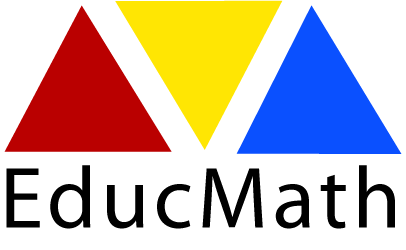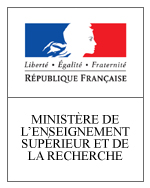Ming-Yu SHAO
PhD student in Mathematics Education
 Laboratory S2HEP (University of Lyon, France)
Laboratory S2HEP (University of Lyon, France)
Doctoral school EPIC
French Institute of Education
École Normale Supérieure de Lyon (France) and East China Normal University (Shanghai)
Email : Ming-Yu Shao
Itinerary
- Defense of the thesis 13th December 2022
- From Sept. 2018: PhD study in ENS de Lyon (France), majored in Mathematic Education, cotutelle Luc Trouche/ Jana Trgalova - Jiansheng Bao - Funding: China Scolarship Council (CSC)
- February 2017 - June 2017: Exchange Student at Department of Mathematics, Taiwan Normal University, Taipei, Taiwan
- Sept. 2015 - June 2018: Master study in ECNU, Shanghai, China, majored in Mathematics Education
- Sept. 2011 - June 2015: Bachelor study in ECNU, Guangzhou, China, majored in Mathematics and Applied Mathematics
Subject of the thesis
How do teachers support students’ coordination of perception and logical reasoning in 3D dynamic geometry environments: French and Chinese cases
There have been long-standing learning challenges in visualization in 3D geometry. 3D dynamic geometry environments (3D DGEs) offer teachers new opportunities for supporting student visualization but also raise issues, such as the tension between students’ perception and theoretic-deductive reasoning. This study investigates an essential teacher practice in 3D DGE integrated learning environments: the coordination behavior which supports students’ coordination of their own perception and different modes of logical reasoning. We further investigate how can this behavior be linked with the characteristics of the (dynamic) geometrical situation and teachers’ knowledge and views.
We establish a compound framework to address these questions. The Documentational Approach to Didactics (Trouche et al., 2020) serves as a global framework to integrate the regularities in teachers’ coordination behavior and the underpinning knowledge and views into a coherent unity – coordination scheme. The rules of coordination in the coordination scheme are further structured with the help of Toulmin's (2003) diagram of argument; the operational invariants in the coordination scheme are categorized with a framework built on Koehler & Mishra's TPACK (2009); the characteristics of the (dynamic) geometrical situation are also structured from several dimensions about the work of Piaget et al. (1973) and Morgan et al. (2009).
Adopting a case study methodology and being situated in a Sino-French cooperation project, we use the compound framework to analyze the 3D DGE integrated lessons of experienced teachers in both France and China. The study finally leads to a renewed framework that allows capturing essential features of teachers’ coordination schemes, and opens new perspectives both for teacher education and for further research.
- Koehler, M., & Mishra, P. (2009). What is technological pedagogical content knowledge (TPACK)? Contemporary Issues in Technology and Teacher Education, 9(1), 60–70.
- Morgan, C., Mariotti, M. A., & Maffei, L. (2009). Representation in Computational Environments: Epistemological and Social Distance. International Journal of Computers for Mathematical Learning, 14(3), 241–263. https://doi.org/10.1007/s10758-009-9156-8
- Piaget, J., Inhelder, B., & Szeminska, A. (1973). La géométrie spontanée chez l’enfant (2nd ed.). Paris: Presses Universitaires de France.
- Toulmin, S. E. (2003). The Uses of Argument (2nd ed.). Cambridge: Cambridge University Press. https://doi.org/10.1017/CBO9780511840005
- Trouche, L., Gueudet, G., & Pepin, B. (2020). Documentational Approach to Didactics. In S. Lerman (Ed.), Encyclopedia of Mathematics Education (pp. 307–313). Cham: Springer International Publishing. https://doi.org/10.1007/978-3-319-77487-9_100011-1
Research projects
- Crossing views on mathematics teachers resources in China and France (2018). French-Chinese seminar in the frame of the JoRISS platform.
- EU-founded Intensive Programme/Erasmus+ Project: Mobile math Trails in Europe (MoMaTrE), March 18-30, 2019, Goethe-University Frankfurt, Germany
- Sub-project of the major educational science research project of Shanghai (2015): “Effective Design of Mathematics textbooks for primary and middle schools”. (granted by Shanghai Education Committee, Project No. D1508)
Publications and communications
Publications
-
Shao, M.-Y., Trgalova, J., & Trouche, L. (second round revision). Coordinating students’ perception and logical reasoning in a 3D dynamic geometry environment: contrasting cases in France and China. JMTE
-
Shao, M.-Y., Kayali, L., Osta, I., Gueudet, G., Pepin, B., & Trouche, L. (accepted for publication). Deepening the ‘resource’ approach to mathematics education by traveling between languages, in L. Trouche, J. Adler & J. Remillard (Eds.), special issue Conceptualizing teachers’ interactions with resources in crossing languages and cultures, ZDM Mathematics Education 55(3)
-
Shao, M.-Y., & Su, H. (2021). 信息技术支持真实情景中的数学建模教学:来自德国的经验. [Information technology supports the teaching of mathematical modeling in real situations: Experiences of Germany.] 比较教育学报 05:157-176.
- Wang, X.Q., & Shao, M.-Y. (2017). 三角公式的若干几何模型. [Several Geometrical Models of Trigonometric Formulae.] 数学通报, 56(6), 1-5.
- Shao, M.-Y.. (2015). 用组合数学方法简化数列通项的求解. [Using Combined Mathematical Method to simplify the problem solving of Sequence.] 中学生数理化:学研版(2), 28-29.
Communications
-
Proceedings of the 45th Conference of the International Group for the Psychology of Mathematics Education (Vol. 1, pp. 104-107). Alicante, Spain: PME.
- Shao, M.-Y., & Zhang, L. (2018). A case study of a Chinese teacher’s lesson: tasks, conceptions and instrumental orchestration”, In V. Gitirana, T. Miyakawa, M. Rafalska, S. Soury-Lavergne, & L. Trouche (Eds.), Proceedings of the Re(s)sources 2018 International Conference (pp. 231-234). ENS de Lyon,
- Shao, M.-Y. (2018). Identifying a hypothetical learning trajectory for Cartesian coordinate system based on a comparative analysis of curriculum standards. 8th ICMI - East Asia Regional Conference on Mathematics Education for oral presentation, May 2018, Taipei, Taiwan.
- Shao, M.-Y. (2016).《基于几何画板实验的圆锥曲线再认识》,[“Re-exploring Conic Sections Based on experiments with Geometry Sketchpad”,] National Mathematical Education Research Association - International Academic Annual Meeting, held in 2016, Wuhan, China.









